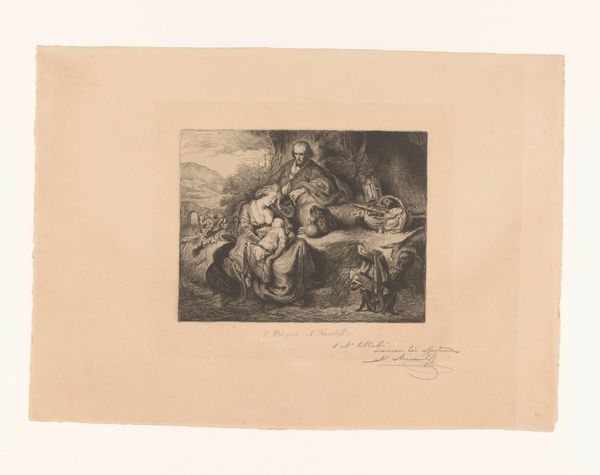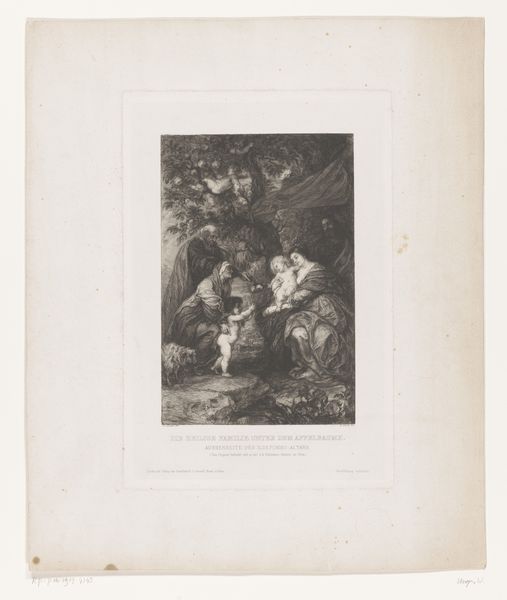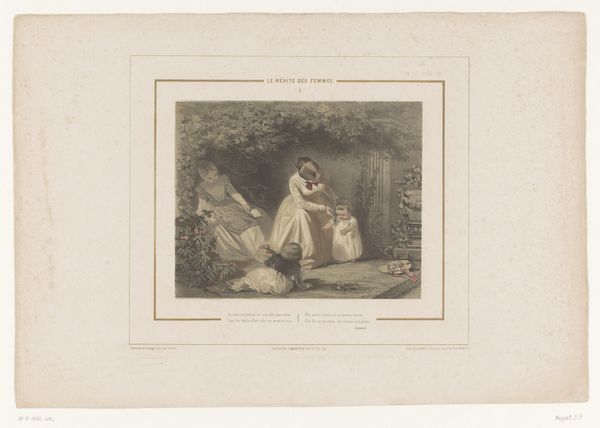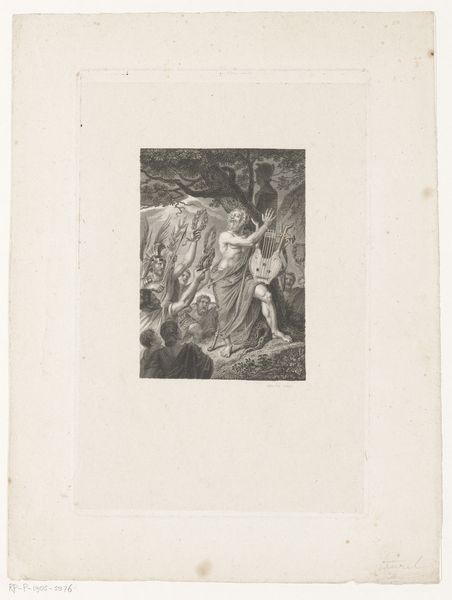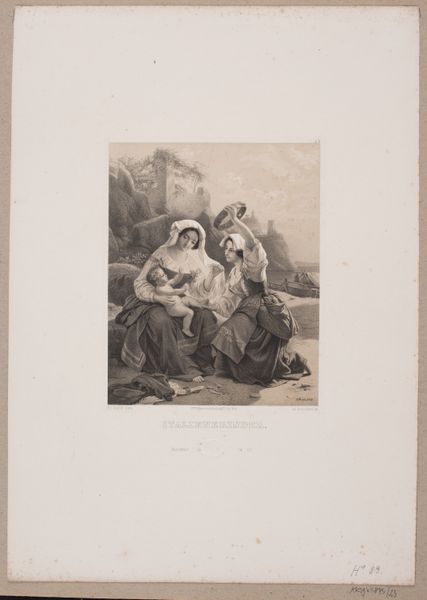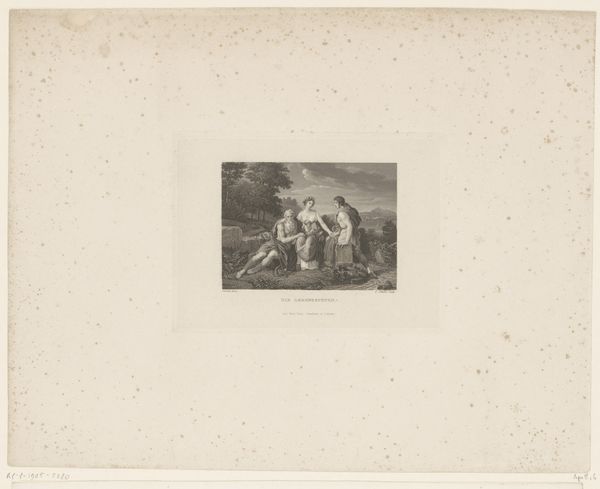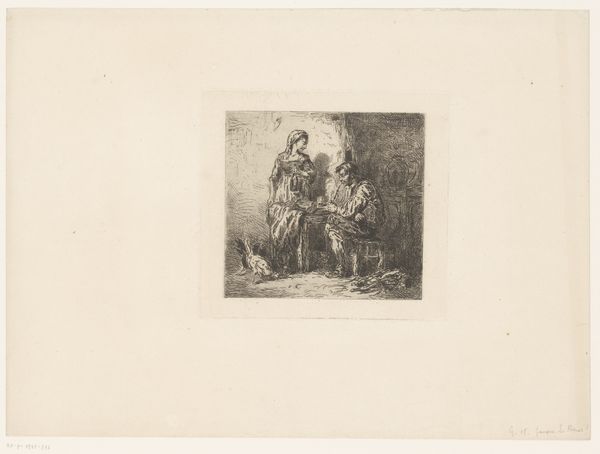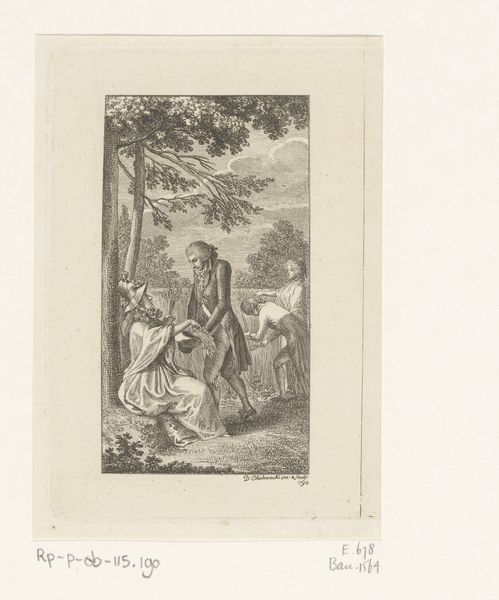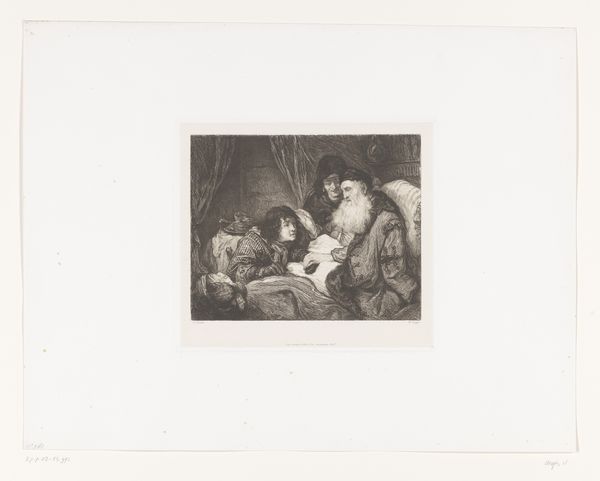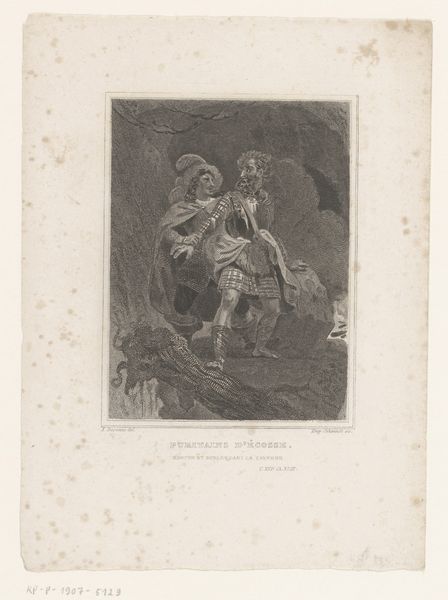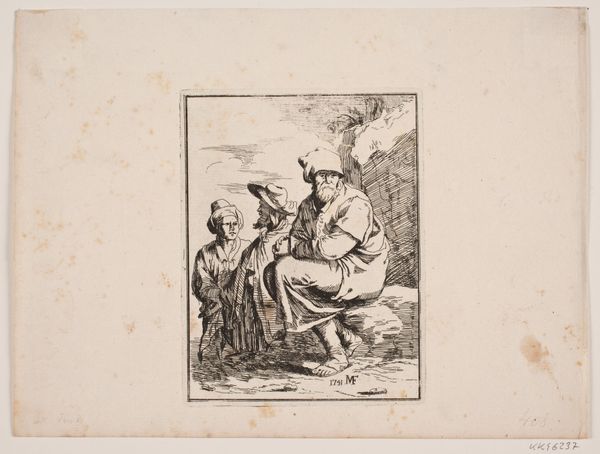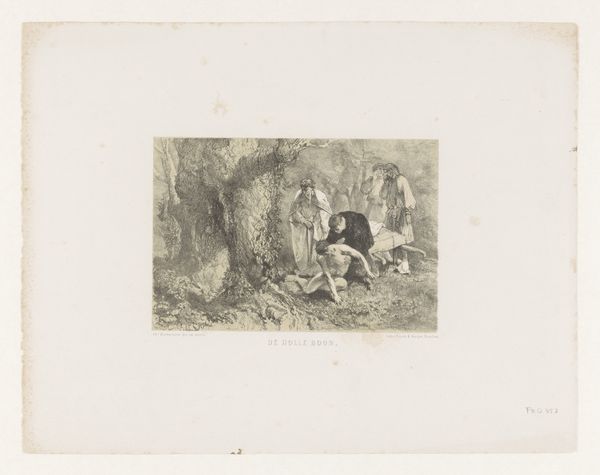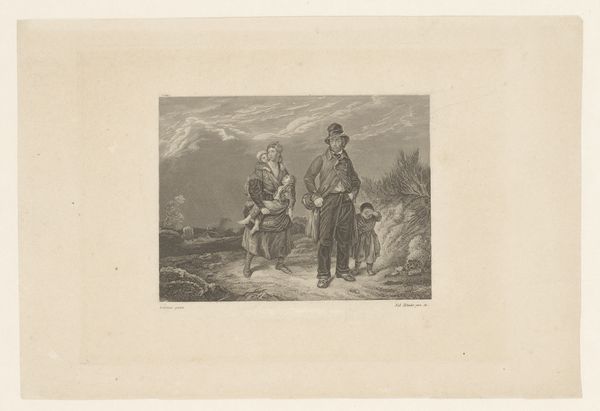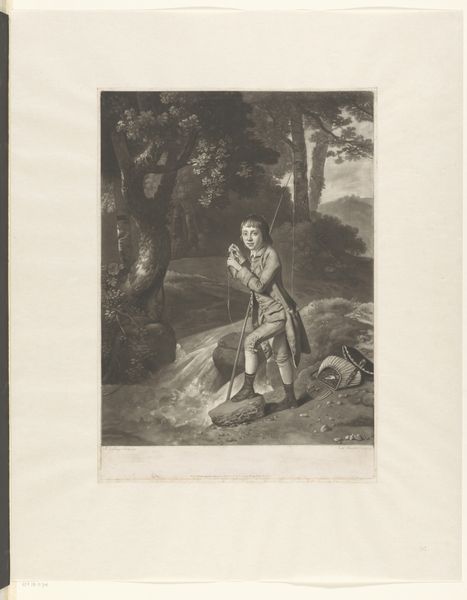
Italiaanse vrouwen en een kind bij een bron 1837 - 1855
0:00
0:00
johanneschristiaandarnaudgerkens
Rijksmuseum
print, paper, engraving
#
narrative-art
# print
#
landscape
#
figuration
#
paper
#
romanticism
#
genre-painting
#
italian-renaissance
#
engraving
Dimensions: height 275 mm, width 370 mm
Copyright: Rijks Museum: Open Domain
Curator: Looking at this print, "Italian Women and a Child by a Fountain", made between 1837 and 1855 by Johannes Christiaan d'Arnaud Gerkens, I’m struck by the Romantic idealization of rural life it presents. Editor: It's quite moving; a definite sense of melancholic beauty hangs in the air. There’s such careful attention given to light and shadow, despite it being a print. What do you think about the choice of the engraving medium itself? Curator: The engraving, using the precise, repeatable method, suggests interesting implications about art production during this period. How was the division of labour organized in studios, and to what extent were these reproducible images intended to be circulated among the broader populace? The consumption of prints like this would have undoubtedly shaped perceptions of Italy in the 19th century. Editor: Absolutely, and if you observe the way Gerkens employs the engraving technique, you can see the rich texture and gradations he’s able to achieve that mimic the qualities of painting. Consider also the socio-political role of artwork – this Romantic idealisation of Italy, what purpose does that serve in the Netherlands? Is it pure escapism or something more complex? Curator: Escapism certainly plays a role, but consider how genre scenes also affirmed and promoted the viewer’s national identity. These portrayals reinforced specific societal norms about womanhood, childhood, and labor and emphasized their relationship with the landscape. Editor: Interesting! So we have the artist’s technique, the materiality of the print, and the social commentary all layered within this single image. Curator: Precisely! It really underlines how much can be unpacked by closely considering both the image and its historical existence as an object of mass consumption. Editor: Examining the print this way, considering its materiality and function, definitely opens up a richer and nuanced understanding of this romantic scene.
Comments
No comments
Be the first to comment and join the conversation on the ultimate creative platform.
